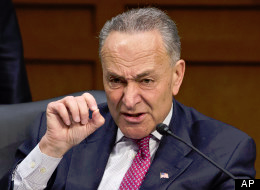Democracy 21 and the Campaign Legal Center are unhappy . They describe the FEC’s ruling yesterday as “too little, too late”.
They now have from the FEC the most constitutionally suspect ruling since adopting the part (b) definition of express advocacy; its resuscitation by the Commission made worse now by the dozen or so circuit court opinions that have, since its adoption, called the definition into question.
D21 and CLC complain that “these cases do not provide the public or 527 groups with clear standards.” We agree, for opposite reasons. The Commission has now accepted the reformers’ invitation to reject express advocacy, though nothing in McConnell commands it, and to ignore independence in a quest to learn of donor impressions, even as the latest Court opinion intimates that donations for independent activity cannot be limited no matter donors’ impressions. The only ‘clear standard’ that could arise now is the mere choice to register with the IRS as a 527 organization, or not dare mention candidates, officeholders, or parties for any reason. The former conflates a choice in tax status with a surrender of speech rights. The latter leaves no room for a meaningful discussion of issues.
The reformers say the fines are paltry and will be viewed by operatives as “a cost of doing business.” This conveniently ignores the fact that it is the precedent not the fines that matter. This precedent sets the table for criminal sanctions. Trust us, no future committee or operative will ignore Commission precedent or believe they may do so with impunity.
Much as they won’t admit it, this is a huge victory for the reformers. They have gained this victory by leaning hard (along with myopic Republicans) on the Commission. We do not expect the leaning to stop and their latest press release proves it. The reformers have chosen not to coexist with the Commission, and will now lean, as they lean through this release, on Congress both to “ban” 527s and create an “independent” FEA to replace a “captured” FEC.
There is no reason to believe the reformers will stop there. Conventional Wisdom says the reformers will only be happy when we have full public financing of political campaigns, even as Wisdom’s purveyors snigger over cocktails at “public financing” as a program of big, fat, but otherwise benevolent, subsidies from the public fisc; welfare for politicians. But as in any area, subsidy presages control. It is not “public financing” the reformers want so much as “clean elections public financing” ministered by “independent” clean elections commissioners. (Have you examined the powers of clean elections commissioners?)
Surely something must make the reformers happy. And it appears to be “independent” management of partisan politics. For those searching for the one reform program pointing the way to reform happiness, one policy proposal symbolic of the entire reform agenda, we make this suggestion: consider their proposal to place an “independent” czar inside a constitutionally created and coequal branch of the federal government; the branch most symbolic of our commitment to partisan politics.














